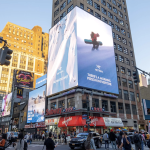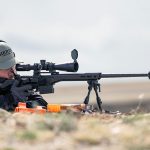With more than 12 billion people visiting public lands each year, the need for Leave No Trace outdoor education is greater than ever before. As part of the Leave No Trace Center for Outdoor Ethics’ Leave No Trace In Every Park initiative, the Hot Spot program is now in its seventh year, having trained more than 50,000 people.
The Hot Spot program is a critical initiative for areas suffering from the severe impacts of outdoor activities. Though damaged, these areas can thrive again with Leave No Trace solutions. Each chosen location receives a unique, site-specific blend of training, expert consulting, education programs for youth and adults, service projects, monitoring programs and more. The result is sustainable outdoor areas that are on the road to a healthy recovery with new, custom Leave No Trace education programs and tools in place.
Hot Spots are designed to educate people about reducing impacts on nature while enjoying our nation’s shared outdoor places. The Center received more nearly 200 nominations for Hot Spots for 2018 and chose just 20 geographically and ecologically diverse sites, nationwide.
“We’ve seen remarkable change as a result of the Hot Spots initiative. Hot Spots are damaged areas that can recover with a motivated community and a week-long, comprehensive infusion of Leave No Trace, centered around training. These efforts include a series of high level training for local officials, land managers, and volunteers, work with the general public conducted by expert Subaru/Leave No Trace Traveling Trainers,” said Dana Watts, Executive Director of Leave No Trace Center for Outdoor Ethics. “By identifying and working with Hot Spots and their communities across the country, Leave No Trace can rapidly support these troubled areas.”
2018 Leave No Trace Hot Spots:
- Delta National Forest | Rolling Fork, MS | January 22 – 29
- Indian River Lagoon Aquatic Preserves | Fort Pierce, FL | February 8 – 11
- Escalante Interagency Visitor Center | Escalante, UT | March 5 – 12
- City of Lansing Parks | Lansing, MI | June 11 – 18
- Mt. Bierstadt | Georgetown, CO | June 14 – 17 | (Revisit)
- Jamaica Bay Wildlife Refuge | Broad Channel, NY | June 25 – July 2
- South Colony Lakes; Sangre de Cristo Wilderness | Duncan, CO | June 25 – July 2
- Blue Lakes; Mt. Sneffels Wilderness | Ouray, CO | July 2 – 9
- Upper Mississippi River National Wildlife & Fish Refuge | Davenport, IL | July 9 – 16
- Lassen Volcanic National Park | Mineral, CA | July 23 – 30
- Conundrum Hot Springs | Aspen, CO | August 2 – 5 | (Revisit)
- Monarch Crest Trail | Salida, CO | August 6 – 13
- Pictured Rocks National Lakeshore | Munising, MI | August 20 – 27
- C&O Canal National Historical Park | Williamsport, MD | August 20 – 27
- Kasha-Katuwe Tent Rocks National Monument | Cochiti, NM | August 27 – September 3
- Superior Hiking Trail | Duluth, MN | September 10 – 17
- Target Rocks National Wildlife Refuge | Lloyd Harbor, NY | September 17 – 24
- Cossatot River State Park – Natural Area | Wickes, AR | September 24 – October 1
- Bayou Teche National Historic Paddle Trail | Baton Rouge, LA | October 18 – 21 | (Revisit)
- Breakneck Ridge & Hudson Highlands State Park Preserve | Beacon, NY | October 29 – November 5
“All of us have our favorite park, beach, river, or hiking trail we like to visit and these outdoor places are impacted over time. It’s important to evaluate the cumulative effect of recreational use and help educate visitors on Leave No Trace practices,” said Aaron Hussman, Subaru/Leave No Trace Traveling Trainer. “In most cases, the land impact is not due to a malicious intent or a desire to harm nature and wildlife. Instead, it’s simply the lack of information and Leave No Trace education.
For more information about Leave No Trace Hot Spot and community events visit www.LNT.org.














